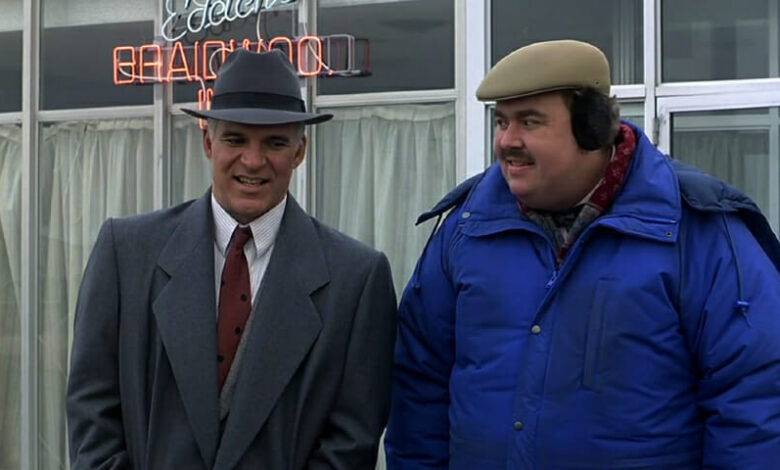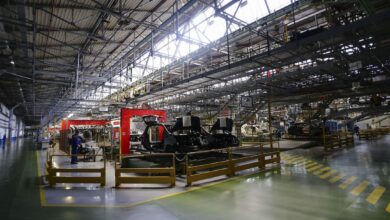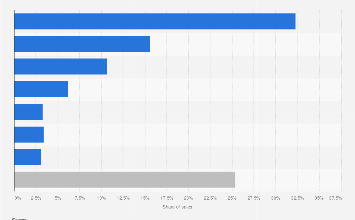Planes, Trains and Automobiles Perfectly Sums Up John Candy and Steve Martin

True Thanksgiving movies are harder to come by than their December counterparts. You could watch Home for the Holidays, a movie Robert Downey Jr. freely admits he doesn’t really remember making. You could watch The Ice Storm and never want to be in a room with your family again as long as you live. Both good movies. But, by acclimation, you can’t do better than Planes, Trains and Automobiles.
Starring Steve Martin as Neal Page, a cynical ad executive, and John Candy as Del Griffith, a good-hearted but obnoxious traveling shower ring salesman, Planes, Trains and Automobiles is an unconventional Thanksgiving movie. As it takes place entirely on their trip from New York to Chicago (using, uh, a bunch of different means of transportation) to get Neal home in time for Thanksgiving dinner, it spends no time anywhere near an actual Thanksgiving table. But by the final scene, in which Neal realizes Del has been lying about having a family to go to, and invites him into his home for the holiday, everyone’s crying and a Thanksgiving never looked so welcoming. Done, dusted. This is the best Thanksgiving movie. That’s settled.
What’s interested me more and more each year, however, isn’t the film’s status as a holiday classic, but its unique position in the comedy careers of its co-stars. Planes, Trains and Automobiles is quietly a perfect distillation of what Martin and Candy could do as comedian-actors.
It was each actor’s second film of 1987. The summer before saw the release of Roxanne, Martin’s fifth outing as a writer, but the first to really show off the light sentimentality and erudite streak that would complement or overwhelm his signature goofiness for the rest of his career. Candy had Spaceballs, which relegates him to the corny buffoonishness he excels at, but relegates him nonetheless.
Splitting the difference is Plains, Trains and Automobiles. The unfortunate thing about having a comedy with a tearjerker ending is that it provides a too-easy explanation for why the movie is important. These are funny, funny men, but in this movie, they are also sensitive, sad, sad men. Yeah, Candy’s delivery of “I like me. My wife likes me. My customers like me,” is a masterfully earnest stroke from an actor who was a legendary live-action cartoon. But that scene occurs relatively early-on in the movie. The film isn’t building to that moment. It already knows he can do it.
John Candy and Steve Martin aren’t/weren’t great comic actors because of their ability to get serious. They weaponized their flexibility as comedians in order to oscillate gracefully between tones. Or, they subtly shift themselves to match the wildly oscillating tone of the movie.
The tone of Planes, Trains and Automobiles is utterly insane. It’s an all-over-the-place exercise in mapping a series of increasingly extreme circumstances on one very clear set of stakes, and it expects its lead actors to stretch and squash to those circumstances. This is a film that maneuvers itself from scenes satirizing the bleak tedium of the office or the airport to full-on Looney Toons set pieces only to land on a glowing, dreamlike vision of family life with complete sincerity.
It’s a movie that allows Martin to be actually unlikeable—a secret talent of his that very few films have taken advantage of—while still relying on a bedrock of goofy, nice-guy credibility in order to pull off a redemptive arc. It’s a movie that has to allow you to actually become annoyed with John Candy—whose most obnoxious characters were still so smartly performed that you were on their side—in order to make you feel guilty and ashamed for judging him. Cast any other comedy actors of the late ‘80s—Bill Murray, Eddie Murphy, or, God forbid, Chevy Chase—and it would become a total disaster.
This would, unfortunately, be the beginning of the last stretch of Candy’s career. He’d play variations on bumbling/clueless/Midwestern in movies that were largely beneath him. Del Griffith would haunt him, in a way, isolating only one of the things Planes, Trains and Automobiles put him to work on. Martin would go on to have several careers beyond this movie, aging gracefully into your classic dad-character actor-banjo player-playwright multi-hyphenate, such that we can look back and identify Planes, Trains and Automobiles as a fulcrum point in his career, in addition to being a skeleton key for the various hats he could wear. We’ll never know whether it would have served a similar purpose for Candy, but I like to think that on a long enough timeline, people would have cast him in roles that appreciated what he brought to Del Griffith.
Regardless, I will—like almost anyone within spitting distance of a working television—watch Planes, Trains and Automobiles every year, savoring what is, for me, a movie that captures two artists at the peak of their powers. If I ever decide to shake it up and try out The Ice Storm for a year, well, maybe we’ll talk about key parties and Fantastic Four metaphors then.
Graham Techler is a New York-based writer and comedian. You’d be doing him a real solid by following him on Twitter @grahamtechler or on Instagram @obvious_new_yorker. A real solid.



